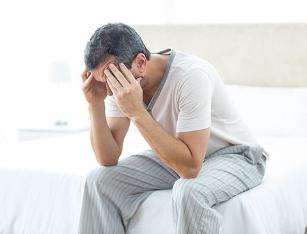Prostatitis affects the prostate gland — glandular-muscular organ located in the pelvic area of the male portion of the population.
According to statistics prostatitis suffer an estimated 50% of men over the age of 50 years.
The prostate gland is responsible for the production of a particular secretion, which, uniting with the sperm, it assists to maintain the activity and viability of sperm.
If prostatitis is diagnosed in the prostate gland inflammatory process is triggered by a hit on the infectious antigen. Inflamed prostate gland disrupts the whole urogenital system of men, and is characterized by some special features. In order to avoid complications, you need time to heal prostatitis with medication and, also, some of the folk remedies at home.
Causes of prostatitis

The root cause of prostatitis is infection. As a rule, the inflammation can cause a variety of different types of bacteria: Escherichia coli, Staphylococcus aureus, Klebsiella, Enterobacter. All of these micro-organisms are present in the microflora of a healthy person, but it was a decrease in the immune system, and their number is pathologically increased, and gives rise to inflammatory processes. Precipitating factors also can be a sedentary lifestyle, bad habits, irregular sexual life.
Also, the emergence of prostatitis can cause infections in the urinary or venereal infections. We're talking about trichomoniasis, chlamydia, gonorrhea, and other diseases. A similar phenomenon occurs for the reason that the prostate gland is closely associated with the activities of other organs of the urogenital system of the male body.
In this way, the causative agent of the inflammatory process readily penetrates into the body through the urethra, the rectum, the lymphatic or the circulatory system of small pelvis. Prostatitis is a nasty disease, symptoms, and treatment that you do not need to be a pigeonhole.
The varieties of the disease
In modern medicine it is accepted to distinguish four main categories of the prostatitis in men:
- sharp;
- chronic bacterial;
- chronic prostatitis;
- chronic symptomatic
Acute prostatitis is not common. This is because of an infection with a bacterial infection, and it takes a lot of hard. The patients complain of acute pain, fever, and fatigue. In the course of the inspection of the iron man is very painful, increase in size. The acute phase is marked by serious complications, so it a patient requires a rapid and skilled medical care.
Chronic bacterial prostatitis in the majority of cases, they are referred to as E. coli. Among its reasons for the decline of the immune system, the presence in the body of the source of infection, surgery in the pelvic area. It goes on for more than those of acute prostatitis, although they have similar symptoms.
Chronic prostatitis is often referred to as chronic pelvic pain syndrome. A distinctive feature of this type is a long-lasting pain relief for more than three months. The tests showed the absence of pathogenic micro-organisms. Asymptomatic type of disease, occurs almost without any signs and symptoms. Usually a person reveals the pathology of the time of a regular examination or in cases of taking of a histological examination of a tissue sample of the prostate gland.
Symptoms of prostatitis: the first sign
Timely diagnostics allows to detect the first symptoms of prostatitis, and it greatly speeds up the process of healing and helps to quickly get back to a healthy and fulfilling life.
Therefore, it is essential to listen to your body and respond to the slightest pain and discomfort.
Usually, the first alarm bell for prostatitis are urinary problems. This is due to the fact that the inflamed organ increases in size and begins to press against the urethra.
A person may feel pain and pain when urinating, and difficulty urinating. The frequency of visits may be increased. These symptoms may be able to join in the feeling of a burning sensation in the perineum, discomfort during defecation. In addition, problems with urination, a characteristic feature of the prostate is a sexual disorder that manifests itself through the different characters.
A man could be overwhelmed with the erectile dysfunction during the sexual act, but it is often seen at night in an erection. In addition, these patients are usually premature ejaculation, and pleasure during orgasm is much reduced.
Another common symptom of prostatitis is pain, but about half of the patients, it is not. Pain pain relief may be able to be fixed, most often this type of pain is localized in the pelvic area. Also, the feeling of pain sometimes when urinating, ejaculation during erection. Any pain of this sort is a sign that you should immediately be seen by a specialist.
The diagnosis

The diagnosis of prostatitis includes a variety of activities that help one hundred percent to confirm or deny such a diagnosis, which, in turn, will help you to cure the prostatitis quickly.
To start the inspection from the specialist. As a rule, it is urologist. The collection of data about a patient and careful hearing of all of his problems, he or she gives a direction for further investigation. First of all, the ultrasound examination of the prostate gland.
Usually I make a traditional, abdominal ultrasound, but in some cases, a transrectal examination, when the sensor is introduced into the rectum, or the urethra.
For suspected inflammation of the prostate, be sure that you have carried out a large number of laboratory studies. This list includes common and blood biochemical analysis, common urine analysis, urine in three parts.
Also, it is not the prostate secretion to detect the bacteria and elevated white blood cells, tested the quality of sperm. If necessary, the doctor may prescribe some additional analysis and research.
In the treatment of prostatitis
If you have been diagnosed with prostatitis, the treatment is generally a fairly long-term exercise that requires the use of not only drugs, but also by the other methods.
The choice of drug for the treatment of prostatitis depends on the type of disease to be diagnosed in men. Also, in acute prostatitis must prescribe broad-spectrum antibiotics. Similar meetings will be those whose prostatitis are caused by bacteria different kinds of. The duration of antibiotic therapy will be different in each individual case, but that is what it's always done under the close supervision of a doctor.
Almost every variety of inflammation of the prostate gland in the quality of the treatment you will be recommended anti-inflammatory drugs, spasmolytic and absorbable agents. For the treatment of non-bacterial forms in the last few years, the frequently used t.o medications alpha blockers. They are thought to contribute to a better flow of urine, relax the muscles of the organs of the pelvis, to better their the circulation of blood.
In the case of a prostate an effective treatment for prostate massage. Some of the doctors advise to use this method, only the chronic non-bacterial prostatitis, believing that, on the contrary, may be facilitating the spread of the infection in the human body. Others believe that massage, on the contrary, it helps to have a better absorption rate into the circulation of antibacterial drugs. An absolute contraindication for this treatment is prostatitis-acute. The prostate massage is carried out in a special way, in a hospital setting. It also improves the flow of secretion of the prostate gland, has a beneficial effect on the blood flow in the body and its muscle tone.
How to treat prostatitis? A good result in the treatment of inflammation of the prostate gland is the use of a variety of physiotherapeutic procedures. In this case we are talking about the ultra - high- and electrical action, magnetic and laser therapy, and so on. A surgical intervention when the disease is at the present time are extremely rare.
What happens if you don't treat it?
The neglect of treatment of the prostatitis, that can lead to a person with a serious problem. Most often the complications of further spread of the infection. Also, the inflammation of the seminal vesicles, when the inflammation affects the the seed tubercle. In addition to this, we are able to develop a variety of diseases of the prostate gland.
In acute prostatitis, a high probability of abscess formation, and then, in the majority of cases, the prostate gland remains is a scar. Also, it is often diagnose stones or cysts of the prostate gland, what are the complications of the disease.
Long the prostatitis affect the sexual life of the people, because it can cause a lot of dysfunction. Usually it is for erectile dysfunction, or premature ejaculation. All of this leads to a decrease in libido as a result of psychological problems. In more severe cases, the disease can also lead to infertility.
The prevention of prostatitis
Prevention is, first and foremost, on a regular basis to monitor their health and promptly identify problems. As the illness most often occurs as a result of an untreated an infection in the genitourinary system, then, first of all, you need to pay attention to this aspect. When any of the signs and symptoms you need to see a doctor-urologist.

You can protect yourself from infections, you are encouraged to use contraceptives, in order to restrict their sexually active relationships with a single partner.
Prevention of prostatitis it is very important that it is the correct way of life. It has long been observed that most often the disease is of concern to those who have the majority of their time in a sitting position. Therefore, the office workers, the drivers, the first to be exposed to the risk. Doctors often recommend going to the load of the body to exercise. However, a sudden change in the ambient temperature or for a long period of overheating and overcooling, is not desirable.
In addition to this, you need to pay attention to your diet. It needs to be as diverse as possible. It is impossible to prevent the constipation, as in this case, the compression of the prostate gland in the body, it can aggravate the flow of blood.

































